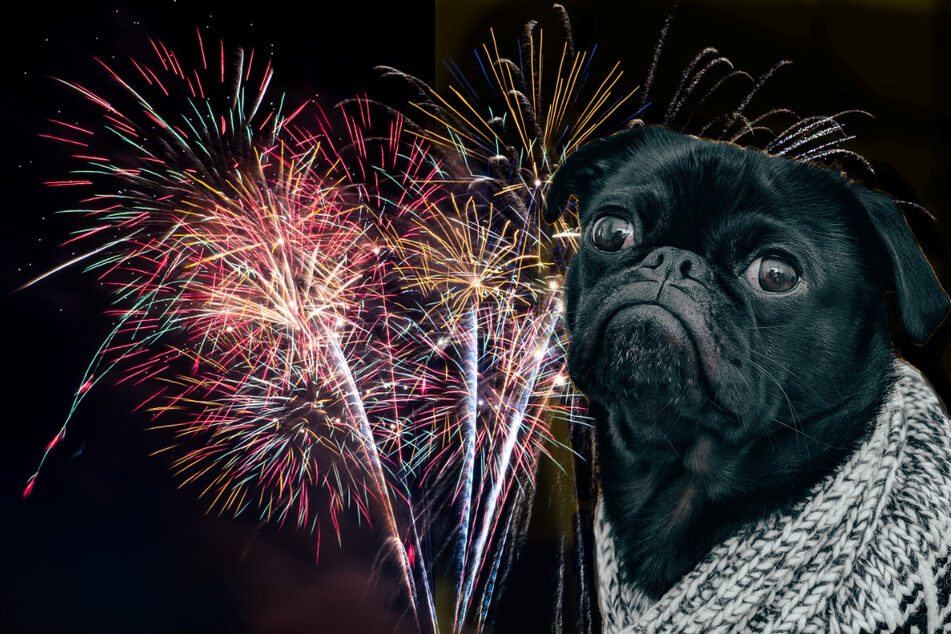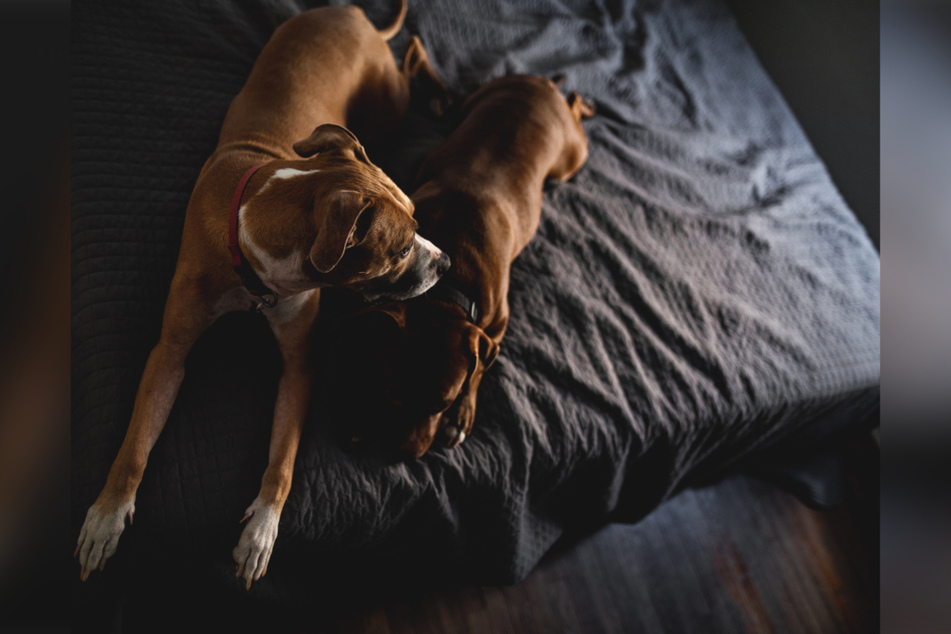Fourth of July: How to help your dog cope with fireworks
If your dog whimpers at the sound of fireworks, you and your pet don't need to spend the Fourth of July in a remote cave. Here's how to make the particularly noisy night more tolerable for your pup.

Deafening bangs, whistles, and bursting booms in the night sky might be the perfect Independence Day fun for us humans, but it can be deeply traumatic for our pets, especially dogs.
Not so for our canine companions, some of whom spend the day in a state of abject terror due to the loud bangs and cracks.
But there are steps you can take to mitigate your pet's distress ahead of and during the festivities.
What to do with your dog during the July 4 fireworks
If your dog always gets anxious on the Fourth of July, take it into a quiet room that doesn't overlook the street and close the curtains long before midnight.
Pets that are used to sleeping in a bed or box will often retreat to their bed, in which case, don't try to lure them out of their safe space. It's a good idea to move their bed into the quiet room for the night if it isn't there already.
If your dog seeks your attention, a gentle petting should do the trick, but try not to overdo it with the attention. After all, you want to exude an air of calm. When in doubt, just give your pooch a hug!
How can you help dogs with fireworks noise?

Hugs can actually work wonders for both humans and pets. It especially helps to hug anxious dogs, as this is the ultimate way of conveying a sense of security.
You can also try to drown out the noise with loud music – provided, of course, your dog isn't afraid of music.
Other distractions include giving tasty treats just before the main cacophony erupts at midnight. Because once your dog gets scared, even its favorite snacks won't work as a distraction.
A last resort is always the medicinal option, which, while seeming drastic, might be appropriate for individual animals. Dogs that experience moderate anxiety on the Fourth of July can be helped, for example, by available pills from your veterinarian.
Consult with your vet for any medicine recommendations, which should be OK for your pooch in isolated usage, according to experts. And for more canine tips and tricks, check out our dog guides.
It's important to remember that the racket is only temporary, so your pup will get through this – but they don't know that. Try to keep them calm and in a safe space, and they'll be able to handle the Fourth with a little more ease.
Cover photo: Collage: Unsplash/charlesdeluvio & Elisha Terada
